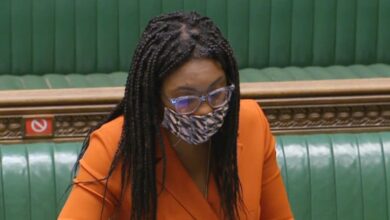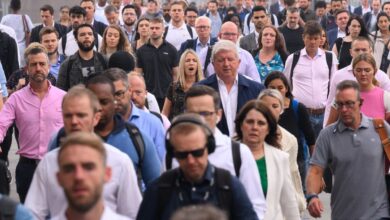Firefighters vote for UK-wide strike over pay for first time in 20 years

Firefighters in the UK have voted for the first nationwide strike on pay since 2003, amid an intensifying wave of industrial action.
The Fire Brigades’ Union (FBU) said it would not start any potential walk-outs until 9 February at the earliest, to allow employers further time to make any new offer.
General secretary Matt Wrack said that 88 per cent of balloted firefighters in England, Scotland and Wales voted for strike, while the figure was 94 per cent in Northern Ireland and 80 per cent in a separate vote held by the North-West Fire Control.
Announcing the results on Monday, Mr Wrack urged authorities to make a higher pay offer after members rejected a 5 per cent increase.
“Firefighters don’t want to see a strike, firefighters want to see a resolution to this dispute,” he said.
“We have agreed to delay the calling of strike action for 10 days, in order to allow the employers to consider the outcome of todays’ votes and to meet us and revise their offer.”
A meeting is to take place on 8 February, and Mr Wrack urged authorities “not to waste that opportunity” by failing to make a “significantly improved pay offer”.
Last week, The Independent revealed that the government had already started planning for the expected strike by organising the deployment of British Army personnel and private contractors.
If the strike goes ahead, an RAF base on the outskirts of London will be used as a base for soldiers and fire engines
A further 27 appliances will be seized from the London Fire Brigade to be held at an undisclosed location, and staffed by a private company.
The FBU said the result of its ballot amounted to “an overwhelming vote for strike action”, and that firefighters’ pay had fallen by 12 per cent in real terms since 2010.
Mr Wrack added: “This is an absolute last resort for our members. The responsibility for any disruption to services lies squarely with fire service employers and government ministers.
“Rishi Sunak’s government has refused to make funding available for a decent pay offer to firefighters and control staff.”
If a national fire strike is held, it would be the first of its kind since pension action between 2013 and 2015, and the first on pay since 2003.
Around 1,200 troops were deployed to cover for striking ambulance workers and Border Force staff over the festive period, with unions again warning that they were not sufficiently trained for the work.
Members of Britain’s armed forces are legally barred from striking, as are the police, and the government has drawn up new laws that would mandate “minimum service levels” for firefighters, the NHS, transport, education and border security.
There is significant opposition to the law, and the Conservative Party is encouraging its MPs to characterise Labour attacks as a defence of their union “paymasters” in the ongoing political battle.
Earlier this month, the national fire watchdog issued a report saying the government needed to reform fire services “as a matter of urgency”.
An annual report by HM Inspectorate of Fire and Rescue Services said ministers, councils, fire chiefs and unions should reduce the risk of industrial action by “working together to consider reforming structures for negotiating pay, terms and conditions”.





